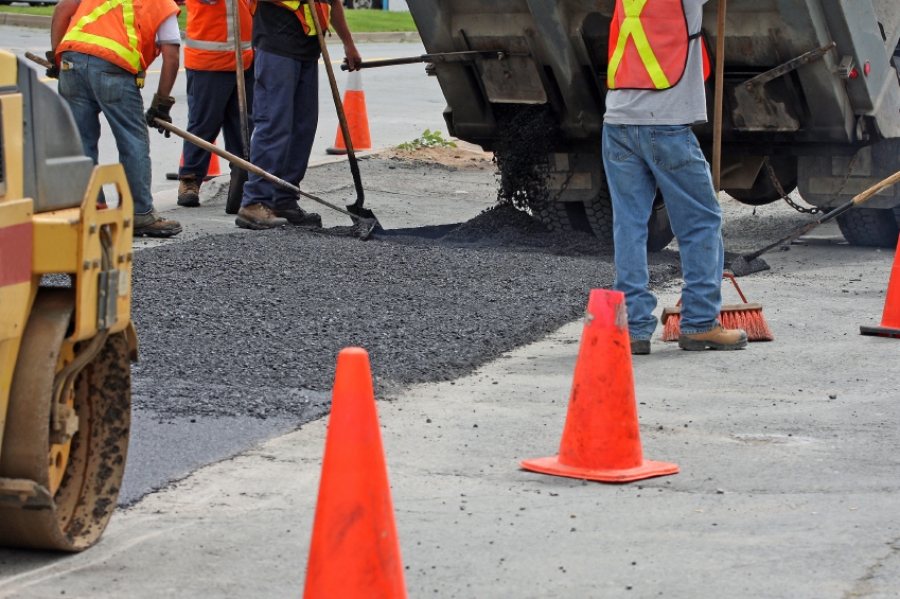Handling Liability for Sub-Standard Asphalt
Welcome to the On Site channelís Construction Administration Column. This column covers the question of liability when asphalt work is judged to be substandard.
Columnist David A. Todd, P.E., CPESC, has 37 years of experience in the architecture, engineering, and construction (AEC) industry and has performed much construction administration during that time. He will answer questions from our readers or from his own practice and will provide answers based on his understanding of the construction process and administration of the construction contract. The focus will be on the customary duties of the owner, contractor, and design professional as typically described in the contract documents.

We hired an asphalt subcontractor to lay the asphalt in a small subdivision (0.8 miles of streets). The testing company said the asphalt cores were all substandard, some of them significantly so, with maybe 2 of 10 close to standard. The asphalt looks good to me. Even the developer's engineer says that the asphalt looks good, but the city engineer says we have to tear it out and do it over. The lab representative wasn't present the day the asphalt was laid. I say the subcontractor was supposed to have a lab representative on hand to check the asphalt as it was laid. In my experience, the laying contractor has the lab representative present, but the subcontractor says it was the general contractor's responsibility to arrange this. Who's responsible for fixing the problem? [from a general contractor]
I have to make a lot of assumptions to answer this question; even with those assumptions, I don't know that I can answer. First, did you have a subcontractor agreement with the sub? I assume not, since you don't mention one. My experience has been that a lot of the work shared between general contractors and the subcontractors with whom they work is done without a signed contract. That isn't good.
Did you have additional asphalt cores taken? This could repudiate or substantiate the initial tests and perhaps isolate some areas that are of adequate quality. It's possible that substantial portions of the asphalt could be kept and worked around. Of course, if the additional tests prove that the first tests were correct, or that maybe only a small amount of the asphalt is good, you will be no farther ahead.
The fact that you and the developer's engineer think the asphalt "looks good" is of no consequence. The test results govern how the finished surface of the asphalt "looks". I've been in the position of the developer's engineer and city engineer on asphalt tests, and I side with the city engineer in this case. The asphalt needs to come out. I'm assuming that the asphalt is bad because (not having a testing lab available to establish a correct rolling pattern), the asphalt layer didn't compact right. You must agree that the absence of testing and relying instead on feel and experience, at the time of laying is what caused the problem.
Who should pay for it? In the absence of a contract that says who should pay, I would fall back on what is customary for the industry in the area where the project was constructed. Who normally makes sure that a testing lab representative is present when asphalt is being laid, to establish the rolling pattern for proper compaction? Is it normally the subcontractor or the general contractor? Someone would normally have that responsibility, and in your case that someone didn't do it. If in your area the subcontractor generally hires the lab representative to be on site to confirm a rolling pattern, then it seems that the subcontractor should pay. However, if in your area it is normally the general contractor who makes all arrangements for lab services and testing, then I'm afraid you will pay.
If that isn't clear, I would probably then resort to who is closest to the work and has the most to gain or lose based on proper performance. It seems that it would be the asphalt contractor. On the day that the work was to be done, surely the subcontractor's foreman noticed that the lab representative wasn't there. Why then go ahead and pave 1.6 lane-miles of street under those circumstances? That is more than enough asphalt for him to demand that a lab representative be present to confirm correct procedures. He should have refused to do any paving work until a lab representative had been called to the site.
However, as the general contractor, you should be familiar enough with asphalt laying to know a lab representative should be present. Why did you let the subcontractor continue under those circumstances? Or, had the subcontractor refused, saying it was your responsibility, why didn't you call a lab and back-charge the subcontractor for the cost?
In the absence of other information, I'd say the subcontractor should pay for tearing out the bad asphalt and properly repaving the streets. If any uncertainty exists as to who should have arranged to have the lab representative present, you might find yourself splitting the cost.

David A. Todd
A senior engineer and corporate trainer of engineering for CEI Engineering Associates, Inc. David has 36 years of experience as a consulting civil engineer. His experience includes water, wastewater, stormwater, roads, and solid waste infrastructure. For much of the last 20 years he has been involved with stormwater issues. Specifications and construction administration have been a specialty of his within civil consulting engineering . He has BS and MS degrees in Civil Engineering, is a registered engineer in four states, and a Certified Professional in Erosion and Sediment Control.

